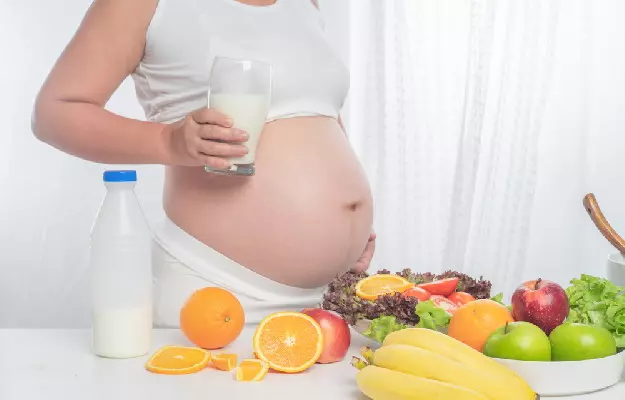It is believed that probiotics can improve the mother's health, reduce the risk of pregnancy complications, and benefit newborn babies.
Beneficial For Gut Health
It is always important to keep your gut bacteria healthy, even when you are pregnant. Some evidence suggests that taking probiotics during pregnancy may be a way to improve the composition of bacteria in the gut and digestive health. A 2020 study in 49 obese pregnant women found that those who took a probiotic from an average of 17 weeks of pregnancy until delivery experienced an increase in good gut bacteria compared to those who took a placebo. More specifically, the probiotic group had more of the beneficial bacteria Lactobacilli, Bifidobacteria, and salivarius. Having high bacterial diversity is indicative of a healthy gut, while low bacterial diversity is linked to negative health outcomes such as metabolic disorders. Promisingly, taking probiotic supplements may help protect against preterm labor and other pregnancy complications.
According to a study conducted in 2020, people who took probiotics had a significantly reduced risk of death and necrotizing fasciitis, which can cause infection during pregnancy.
Reduce The Risk Of Eczema In Babies
If you're pregnant, taking probiotics may help reduce the risk of eczema – a condition characterized by red and itchy skin – in you and your baby.
For example, a 2020 review linked probiotic supplements to significantly reducing the risk of eczema during pregnancy. A 2019 review of 28 studies found the use of probiotics during and after pregnancy significantly reduced the risk of eczema in infants and children. The World Allergy Organization recommends probiotic use in pregnant women and infants with a family history of allergic disease. Combined, this suggests that taking probiotic supplements may help prevent eczema in pregnant women and infants.
Read More- (Foods to eat during pregnancy)
Helpful In Reducing Depression And Anxiety
Probiotics may reduce the risk of or treat symptoms of depression and anxiety during and after pregnancy. According to a 2017 study of 380 women, taking a probiotic called Lactobacillus rhamnosus HN001 (HN001) from 14-16 weeks of pregnancy until 6 months after birth significantly reduced depression and anxiety compared to a placebo. In conclusion, there is evidence that probiotics may reduce depression and anxiety during and after pregnancy.
It's not unusual to experience depression or anxiety during or after pregnancy, and you don't have to go through this difficult time alone. Keep talking to your doctor for help and to get the right care as soon as possible.
Mother's Health May Improve
If you're pregnant, it's important to stay healthy to reduce the risk of complications and prevent complications after delivery. Probiotic supplements may help lower blood sugar and insulin levels in pregnancy, which may improve health and reduce the risk of complications. According to a 2018 study, the use of probiotics during pregnancy reduced blood sugar and insulin levels. The researchers suggested this could help people with gestational diabetes reduce the need for blood sugar-lowering medication later in pregnancy. Several other studies have also shown how taking probiotic supplements during pregnancy may benefit insulin and blood sugar levels.
If you're interested in taking probiotic supplements to help lower blood sugar or insulin levels, it's understandable, but be sure to talk to your doctor first to see if this is the best approach. .
Read more- (Pregnancy Week by Week)













